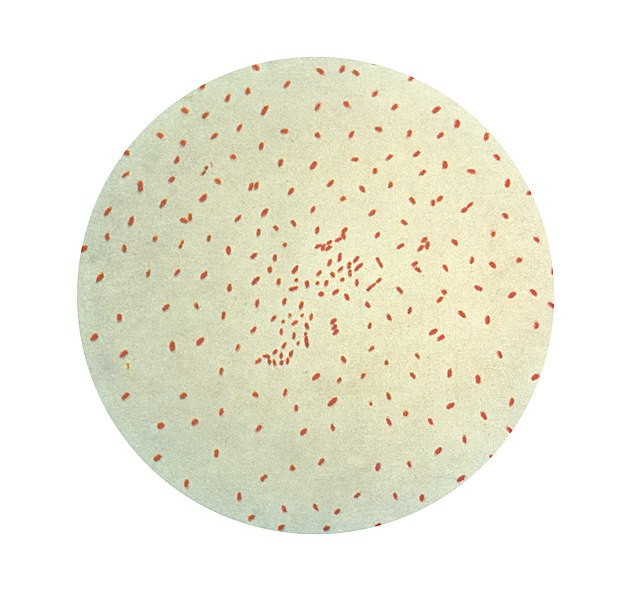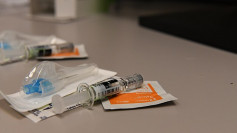A troubling surge in whooping cough cases has been sweeping across the United States, with the latest data from the Centers for Disease Control and Prevention (CDC) indicating that the situation is worsening. Reported cases of pertussis, the bacterial infection commonly known as whooping cough, have accelerated to levels not seen in years, raising public health concerns and prompting calls for heightened awareness and prevention efforts.
According to the CDC, at least 259 new cases of whooping cough were reported in the first week of August, a sharp increase from 215 weekly cases in late June. This brings the total number of pertussis cases reported so far this year to over 10,000, a staggering figure that reflects a significant rise compared to previous years. Notably, Pennsylvania has been hit hardest, reporting 1,489 cases, followed closely by New York with 1,266 infections.
The resurgence of whooping cough comes after a period of record lows during the COVID-19 pandemic, when widespread mask-wearing and social distancing likely contributed to a decline in many airborne infections. However, as pandemic-related precautions have eased, diseases like pertussis are making a strong comeback, and health officials are urging the public to remain vigilant.
"Mitigation measures during the pandemic, such as masking and remote learning, likely lowered the transmission of pertussis," said Tami Skoff, a CDC epidemiologist, during an April event hosted by the National Foundation for Infectious Diseases. "But now, as those measures have been relaxed, we're seeing a return to pre-pandemic trends, and the numbers are climbing once again."
One of the contributing factors to the increase in whooping cough cases is the waning effectiveness of the acellular pertussis vaccine, which has been in use since the 1990s. While the vaccine is safer than its predecessor, its protection diminishes over time, making individuals more susceptible to infection as they age. "We believe one of the driving factors is the waning protection from acellular pertussis vaccines," Skoff noted.
Despite the rise in cases, the CDC's vaccine experts have not yet recommended booster shots, though Skoff hinted that new vaccines with longer-lasting protection are in the pipeline and could be available in the coming years.
Whooping cough is a highly contagious respiratory infection caused by the bacteria Bordetella pertussis. The infection typically begins with symptoms resembling those of the common cold, such as a runny nose, mild cough, and sneezing. However, within two weeks, the cough often worsens into violent coughing fits that can last for several minutes and are followed by a distinctive "whooping" sound as the patient gasps for air.
These coughing episodes can be severe enough to cause vomiting or even lead to a temporary cessation of breathing, particularly in infants and young children. Infants are at the highest risk for complications, including pneumonia and neurological issues, and they account for the majority of hospitalizations related to pertussis.
While vaccines and modern treatments have drastically reduced the number of childhood deaths from whooping cough compared to the early 20th century, the disease remains a serious concern. Early treatment with antibiotics can help reduce the severity of the illness and prevent its spread to others, particularly those at higher risk.
Doctors typically diagnose whooping cough by taking a swab from the patient's nose, which is most effective when done within the first three weeks of symptoms. "In the setting of waning immunity, we are seeing more cases in older individuals, and oftentimes clinicians don't initially consider pertussis in their diagnoses," Skoff explained.
Treatment usually involves a course of antibiotics, such as azithromycin, taken over five days. While antibiotics do not shorten the duration of the disease, they do help prevent transmission to others. For those who have been in close contact with someone diagnosed with pertussis, preventative antibiotics may be prescribed even if they are not showing symptoms.
Preventing the spread of whooping cough is crucial, and vaccination remains the most effective defense. The pertussis vaccine is part of the standard childhood vaccination schedule, and it's important for individuals to stay up to date with their shots. However, because vaccine protection can wane over time, booster doses may be necessary, particularly for adults and adolescents.
In addition to vaccination, public health officials recommend practicing good hygiene, such as covering your mouth and nose when coughing or sneezing and washing your hands frequently. These simple measures can help reduce the spread of the infection, especially in communal settings like schools and workplaces.






